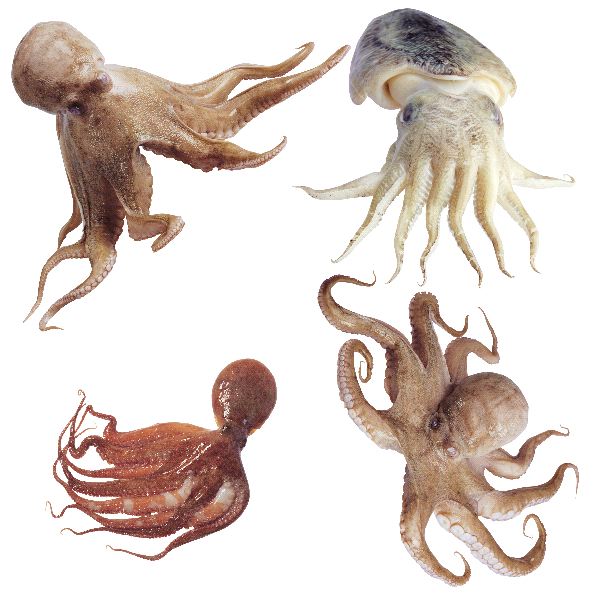Octopus Intelligence And Skills
Article overview:
-
- Octopus Intelligence And Skills
- Was Aristotle Wrong About Octopussies?
- When Did We Really Start To Research Octopus?
- How Many Neurons does An Octopus has Compared To A Dog?
- Can Octopuses Learn By Observing Each Other?
It may surprise you to learn just how intelligent the Octopus happens to be. They are amazing animals that are able to effectively problem-solve. This has helped them to be able to do very well in their changing environments. They are able to find food and they are able to find shelter in places you would never imagine.
They have the ability to recall both short and long term memories. Experts have seen them successfully master mazes with different levels of difficulty in no time at all. They can also remember locations to find great food and where they should avoid. They are well known for being able to escape when they are in captivity too.
They are able to determine patterns, to distinguish size, and even to identify colors and shapes. It is really amazing to see how developed and advanced that they are able to be. The specifics of all of it though often depends on the species involved. For example, the Mimic Octopus is able to copy the behaviors of at least 15 other known animals in the water. They do this to offer them protection against various predators in the water. They also do it so they can get close to their own prey without being detected.
There are some limitations that prevent us from being able to fully explore just how developed the Octopus can be. The fact that they have a very short life span means there is always a rush to work with them. Coming up with ways to test their intelligence continues to be something that holds us back as well.
Visit Octopusworlds.com octopus art portfolio.



High resolution art print files to download now and print in your local or online print service.
🐙Example: image pixel size Resolution: 9984 x 14592 = Higest print size: 90 x 51 inches or 231 x 131 centimetres
in brilliant print quality 🐙 – PRICE – 5$ for 1 download – ![]() I am deeply thankful for your support people
I am deeply thankful for your support people![]()
![]()
[button link=”//octopusworlds.com/octopus-defenses/” type=”big” newwindow=”yes”] OCTOPUS DEFENSES – Read Or Listen To The Article.[/button]
Octopus doesn’t do very well in captivity
The fact that the Octopus doesn’t do very well in captivity is another issue. They have to be tested and evaluated in their natural setting whenever possible. Yet that can make it very hard to do when you consider the cost involved. You also have to factor in safety elements for the researchers. Watching their backs against various predators in the water is a priority.
Many experts agree that the future is one where the Octopus will definitely be able to continue moving forward. They are able to benefit from their environment and to continually learn. With most animals, they rely upon instinct alone for survival. That isn’t the case here though where they can develop amazing skills in various areas.
Just like humans, individual Octopus is able to demonstrate advanced skills of intelligence over each other. That is very interesting because you usually won’t find that within a species. They are all about the same level of intelligence all the way around. This fuels the theory that they are independent learners though instead of one that is only driven by their instincts.
[button link=”//octopusworlds.com/octopus-anatomy/” type=”big” color=”purple”] Anatomy Of The Octopus – Read Or Listen To The Article Click Here.[/button]
The fact that young Octopus can struggle to learn how to control their own bodies is also interesting. That is another reason why they can’t rely upon instinct alone. It is through trial and error that they actually learn how to move their bodies in the ways that help them to be successful hunters and survivors.
Finding funding for ongoing testing in the area of Octopus intelligence though is a barrier. Most people don’t find such experimentation to be worthwhile. There are many other animals that they feel are more important to evaluate. You also have animal rights groups that don’t feel these animals should be bothered in such a manner.
If you would like to find out for yourself how intelligent they are, go online and view various videos of them. You will be amazed at some of the things they are able to do. This can be your opportunity though to explore this side of them. For most of us, observing them exhibit high levels of intelligence in their natural setting won’t happen. This is the next best thing!
Check out video number 2. Smart Octopus Escapes out of A closed Jar
Was Aristotle Wrong About Octopussies?
The first known written record referring to octopus habits comes from Aristotle (330 BC) who encountered O. Vulgaris in The Mediterranean Sea and denounced it as “stupid,” since its natural curiosity made it so easy to capture. In the past century or so, O. Vulgaris has been the subject of thousands of research papers on topics including physiology, neurobiology, behavior, embryology, phylogeny, and genetics.
[button link=”//octopusworlds.com/octopus-senses/” type=”big” color=”purple” newwindow=”yes”] Octopus Senses – Read Or Listen To The Article Click Here. [/button]
When Did We Really Start To Research And Learn About The Octopus?
The mid-twentieth century was the heyday of octopus learning and brain research.
Early neuroanatomical experiments demonstrated that the octopus’ ability to acclimate to captivity, its resilience to surgery and its inherent curiosity made it an excellent subject for studying learning and its neural basis. Starting in the late 1940s, J.Z. Young and B.B. Boycott conducted hundreds of ablation experiments, learning tests and histological analyses at the Stazione Zoologica in Naples, Italy. Together with other researchers, including M.J. Wells, N.S. Sutherland, H. Maldonado, and G.D. Sanders, to name just a few, they were able to identify the functions of specific brain lobes and regions, and demonstrate that octopuses possess memory, can make subtle discriminations based on visual or tactile information, and are capable of mastering associative learning tasks, including reversal learning (summarized in Borrelli and Fiorito, 2008; Marini et al., 2017). The neuroanatomical investigations of Young and his colleagues also showed that while the brain of the octopus has the typical invertebrate organization of neuronal cell bodies surrounding neuropil and is molluscan in origin, it is much more centralized than that of any other mollusk and most other invertebrates.
Based on putative homologies between the gastropod and cephalopod brain, it appears that over the course of evolution, the connections between ganglia in the primitive cephalopod nervous system shortened, causing them to shift in position and come together.
The modern cephalopod brain clusters into three major parts: the sub-esophageal mass, the supraesophageal mass, and the two optic lobes. These are organized around the anterior part of the esophagus and encapsulated within the cartilaginous “skull”. In general, the structures of the supra-esophageal mass seem to play the roles of “higher” motor and sensory centers, integrating information from multiple sources and processing it to produce the appropriate response. By contrast, the sub-esophageal mass contains structures that act as “intermediate” and “lower” sensory and motor centers that integrate raw sensory signals and perform some processing before transferring them onto the “higher” centers (Young, 1991, 1995; Hochner et al., 2006; Edelman and Seth, 2009).
How Many Neurons does An Octopus has Compared To A Dog?
Together, the octopus brain contains over 180 million neurons, with another 320 million or so located throughout the eight arms. Dogs have about the same amount of neurons as an Octopus 500 million.
Early cephalopod research determined that the most important region of the brain for learning is the vertical lobe. The vertical lobe is involved in the “read-in/read-out” of visual and chemo-tactile memory and in modulating the attack response during learning tasks. Interestingly, like the mammalian cortex, the vertical lobe of octopus is characterized by convolutions and folding that reduce the total volume Octopus 3 And the length of connections between neurons while increasing surface area. This feature is absent in squid and cuttlefish. In O. Vulgaris the vertical lobe is characterized by five lobules oriented longitudinally (anterior to posterior) and comprising about 25million nerve cells or more than 60% of the total number of nerve cells comprising the supra-esophageal mass.
[button link=”//octopusworlds.com/octopus-habitat/” type=”big” color=”teal” newwindow=”yes”] Octopus Habitat Read Or Listen To The Article Click Here.[/button]
Sensory information from the visual, tactile, chemosensory, and equilibrium systems is processed by a series of neural matrices distributed throughout the lobes of the brain. These lobes integrate the different forms of sensory input and help effect the proper response by either promoting attack or encouraging retreat. Vision seems to be octopuses’ primary source of sensory information, and concomitantly, a great deal of neural tissue is devoted to the eyes (e.g., optic lobes). However, sensory information from multiple sources (e.g., tactile, chemosensory) results in better performance during discrimination and other learning tasks. It is interesting to note, however, that octopuses show deficits in their ability to integrate multi-modal sensory input and a seem to lack full proprioceptive awareness of their body. Unfortunately, there are no simple rules dictating the way an octopus assesses its environment, but it is clear that octopuses can attend to certain aspects of sensory inputs over others (e.g. vertical vs. horizontal extent) and choose which aspects are most relevant based on context (Boycott and Young, 1955; Young, 1961, 1964, 1991; Huffard, 2013).
[button link=”//octopusworlds.com/octopus-feeding/” type=”big” color=”red”] Octopus Feeding Read Or Listen To The Article Click Here [/button]
After the heyday of octopus research between the 1940s and the 1960s, the initial excitement for neuroanatomical experiments with octopus dwindled. However, the past decade has seen something of a Renaissance in octopus research as new methodologies facilitate investigation and as it becomes apparent that these animals have incredible potential to inform a variety of fields, such as technology, robotics, medicine, and evolutionary biology. A number of neuromodulators (e.g., serotonin, dopamine), hormones (e.g., corticosterone) and other compounds (e.g., nitric oxide) have been identified as occurring in and affecting the nervous systems of cephalopods. Recent work has benefitted greatly from the use of modern imaging techniques (e.g. ultrasound, fluorescent microscopy, Micro-CT), molecular quantification (e.g., gene expression) and genomic sequencing (Kerbl et al., 2013;
Liscovitch-Brauer et al., 2017). In particular, the sequencing of the entire genome of Octopus bimaculoides has shed light on the nervous system of the octopus. The SEM and the SUB are each subdivided into several brain lobes (primary lobes are labeled with acronyms). In addition, the distinct layers present within the optic lobes (plexiform layer, medulla) are indicated. Note the relatively small proportion of the SEM belonging to the vertical lobe despite it being the structure containing the greatest number of nerve cells in the entire SEM (see text for details).
The octopus brain constitutes the highest degree of neural centralization among cephalopods and mollusks in general.
Octopus Evolution of the central nervous system and cognition of this group (Albertin et al., 2015). Other recent work suggests that much of the behavioral and neurobiological flexibility of octopus may be made possible by the unique ability of coleoid cephalopods to modify their own mRNA in order to expand the variety of proteins that can be expressed, thus facilitating physiological and neural plasticity (Liscovitch-Brauer et al., 2017).
In addition to the contribution of new technology, laboratory tests of behavior have become more refined, with experiments that utilize ecologically relevant stimuli and standardized ways of assessing “subjective” characteristics, such as body patterns and exploration. But while laboratory investigation has played a tremendous role in increasing our knowledge about octopus, it can only get us so far. Data from the field, including direct observations of behavior, indirect material evidence (e.g., shell midden contents) and data gathered remotely from cameras and other monitoring devices are just beginning to see widespread use.
Can Octopuses Learn By Observing Each Other?
Yes, they can learn a task simply by watching how another octopus solves an assignment.
This is also called social learning.
Already, this work is challenging traditional beliefs about the octopus. For instance, octopuses were once thought to shun contact with other octopuses entirely except while mating and were therefore considered solitary or asocial. But the discovery of two high-density sites in Australia (O. tetricus), dubbed “Octopolis” and “Octolantis,” shows that octopus sometimes co-exists in locations that are well-endowed with coveted resources like den material or prey. The existence of such instances of high-density co-existence makes sense because octopuses can learn by observing each other (known as “social learning”) since such an ability would not be expected to evolve if octopuses were entirely solitary (Fiorito and Scotto, 1992; Scheel et al., 2016). In addition to a general increase in coastal field studies, a steady increase in open-ocean and deep-sea exploration over the past decades has increased the number of known species and forced the realization that the life history and habits (e.g., lifespan, brooding behavior) displayed across this group may be more different than previously thought. Instances of this will likely increase in the next decades since evidence from around the globe suggests that octopuses and other cephalopods are proliferating as a result of climate change (Doubleday et al., 2016). In a more general sense, scientists and philosophers alike have come to realize that octopuses and their coleoid relatives are interesting points of reference with which to compare other animal groups. Despite having diverged from vertebrates over 500 million years ago, coleoids convergently evolved several analogous structures (e.g., a camera eye, a statocyst equilibrium system) and abilities (e.g., long term memory, associative learning) that were once thought to be exclusive to vertebrates.
[button link=”//octopusworlds.com/octopus-reproduction/” type=”big”] Octopus Reproduction Read Or Listen To The Article Click Here. [/button]
Can an Octopus use a tool?
Behaviorally, there is also evidence that octopuses use tools, solve “puzzles,” learn from observing conspecifics, play with objects in their environment, and demonstrate consistent long-term personalities. Anatomically, cephalopods exhibit a higher brain-to-body weight ratio than fish and reptiles, almost equal to that of birds and mammals.
There are also structural convergences on a more fundamental level, such as the existence of activity-dependent long-term potentiation (LTP, a cellular analog of plasticity involved in learning and memory) and the formation of analogous processing networks (e.g., “fan-out/fan-in”).
The existence of cognitive and behavioral sophistication in such a distantly-related group of “primitive” invertebrate mollusks has also forced a reconsideration of the assumption that only mammals and birds can exhibit intelligence and suggests that it may have evolved independently multiple times and in various lineages. In addition to the evolutionary convergence between vertebrates and cephalopods, there are also some instructive differences. Octopuses sometimes accomplish the same feats as vertebrates via alternative mechanisms, demonstrating that the pattern evolved in vertebrates is not the only evolutionary “solution” to a particular challenge. For instance, unlike mammals and other vertebrates, which have a somatotopic relationship (point-for-point correspondence) between locations on the body and the somatosensory cortex of the brain (the “homunculus”), octopuses seem to lack any such arrangement, indicating a fundamentally different underlying neural organization (Zullo et al., 2009). However, some recent behavioral and neuroscience studies offer potential challenges to this view.
[button link=”//octopusworlds.com/octopus/” type=”big” newwindow=”yes”] The Octopus – Amazing Features – Read Or Listen To The Article Click Here[/button]
Three hearts, a massive brain, and blue blood, they navigate unlike anything else. The earliest octopus fossil is Pohlsepia, which swam the oceans 296 million years ago.
More Research Is Required
In order to know if octopuses possess somatotopic maps in the central nervous system and to understand the extent of their proprioception (Tytell, 2010). Finally, unlike mammals and birds, essential skills and information are learned a new by each generation, as there is no parental care of the young, and thus no opportunity to pass knowledge and learned over the course of a lifetime from one generation to the
Please help us share knowledge about Octopuses.
Knowledge creates awareness about the astonishing wildlife around us.
[box type=”bio”] Leave a comment or a link to your favorite Octopus video or story.[/box]










It’s kinda obvious you literally copied and pasted chunks of the text into this article. In at least one spot, you left in a number for a source that isn’t given here. In more than one spot, you didn’t complete a sentence, or a thought, and just stopped there, to jump to another thing in the following paragraph. And that is disappointing; immensely disappointing.
I just couldn’t depart your web site prior to suggesting that I extremely enjoyed the standard information a person provide for your visitors? Is gonna be back often to check up on new posts